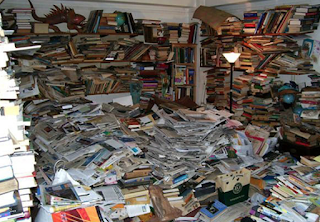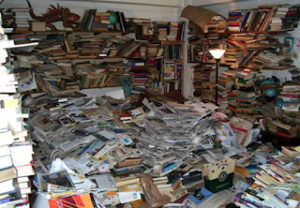In an article today in USA Today, It’s called a hidden epidemic,” said Megan O’Bryan, an Indianapolis clinical psychologist who specializes in obsessive-compulsive disorder and hoarding. “Hoarders are reluctant to reveal it. They are embarrassed by it but don’t want to seek treatment.” The roots of this problem lie in a diagnosis of Obsessive Compulsive Disorder. These are the signs as reported by the International Obsessive Compulsive Disorder Association.
• Accumulating of large amounts of clutter in the home, office or car, making it difficult to move around easily.
• Having difficulty getting rid of possessions because of an emotional attachment to them.
• Not being able to stop taking free items.
• Buying too many items because they are bargains or to stock up.
• Not inviting family or friends into the home because of embarrassment.
• Losing important items like money or bills in the clutter.
• Feeling overwhelmed by the volume of possessions that have taken over.
Source: International Obsessive Compulsive Disorder Foundation
If you, or some one you know suffers from this problem, get help. A combination of medication and Cognitive Behavioral Therapy can relieve a lot of suffering. This is a painful and difficult problem that requires professional intervention.





